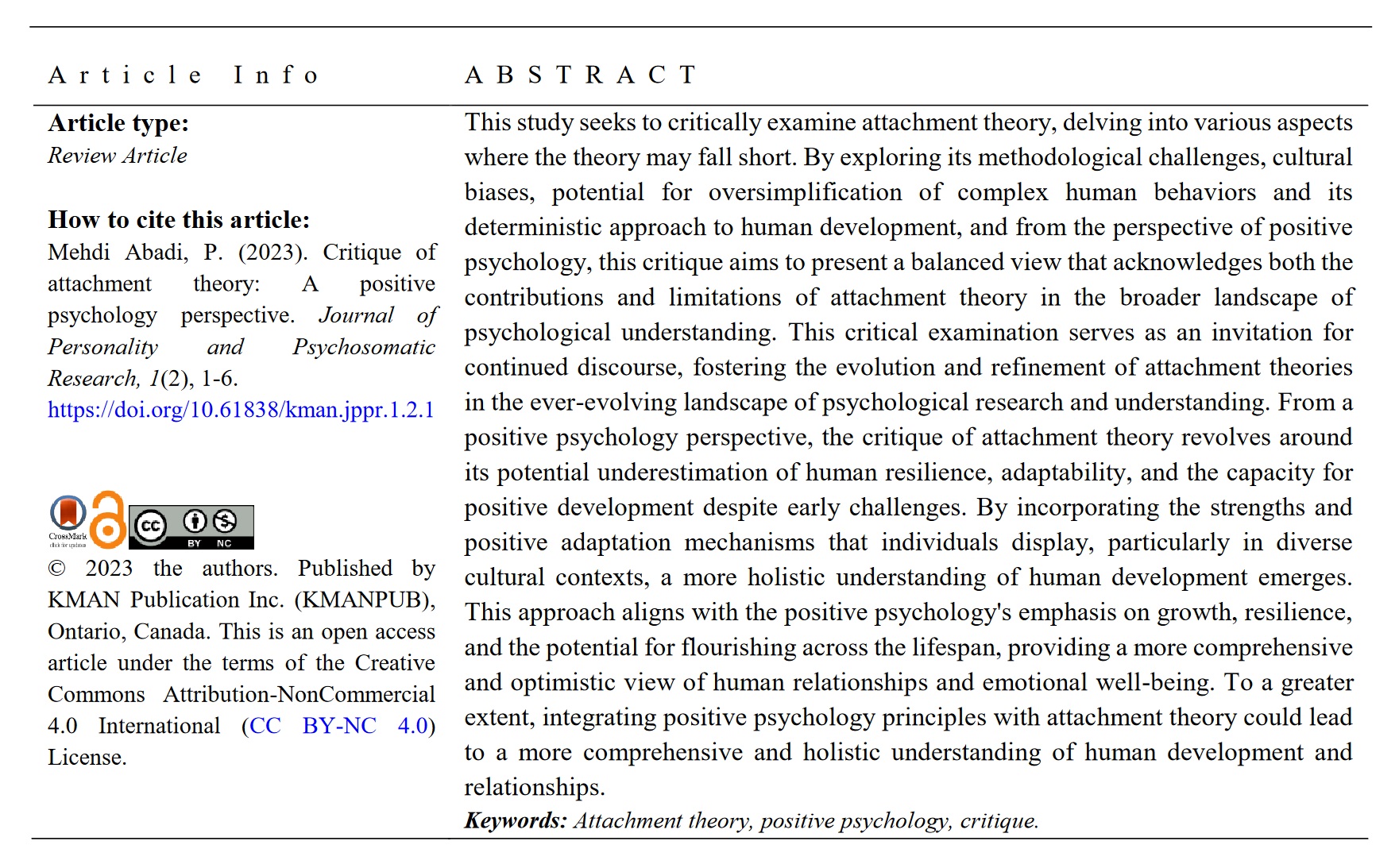Critique of attachment theory: A positive psychology perspective
Keywords:
Attachment theory, positive psychology, critiqueAbstract
This study seeks to critically examine attachment theory, delving into various aspects where the theory may fall short. By exploring its methodological challenges, cultural biases, potential for oversimplification of complex human behaviors and its deterministic approach to human development, and from the perspective of positive psychology, this critique aims to present a balanced view that acknowledges both the contributions and limitations of attachment theory in the broader landscape of psychological understanding. This critical examination serves as an invitation for continued discourse, fostering the evolution and refinement of attachment theories in the ever-evolving landscape of psychological research and understanding. From a positive psychology perspective, the critique of attachment theory revolves around its potential underestimation of human resilience, adaptability, and the capacity for positive development despite early challenges. By incorporating the strengths and positive adaptation mechanisms that individuals display, particularly in diverse cultural contexts, a more holistic understanding of human development emerges. This approach aligns with the positive psychology's emphasis on growth, resilience, and the potential for flourishing across the lifespan, providing a more comprehensive and optimistic view of human relationships and emotional well-being. To a greater extent, integrating positive psychology principles with attachment theory could lead to a more comprehensive and holistic understanding of human development and relationships.
Downloads

Downloads
Additional Files
Published
Issue
Section
License
Copyright (c) 2024 Parichehr Mehdiabadi (Corresponding Author)

This work is licensed under a Creative Commons Attribution-NonCommercial 4.0 International License.






